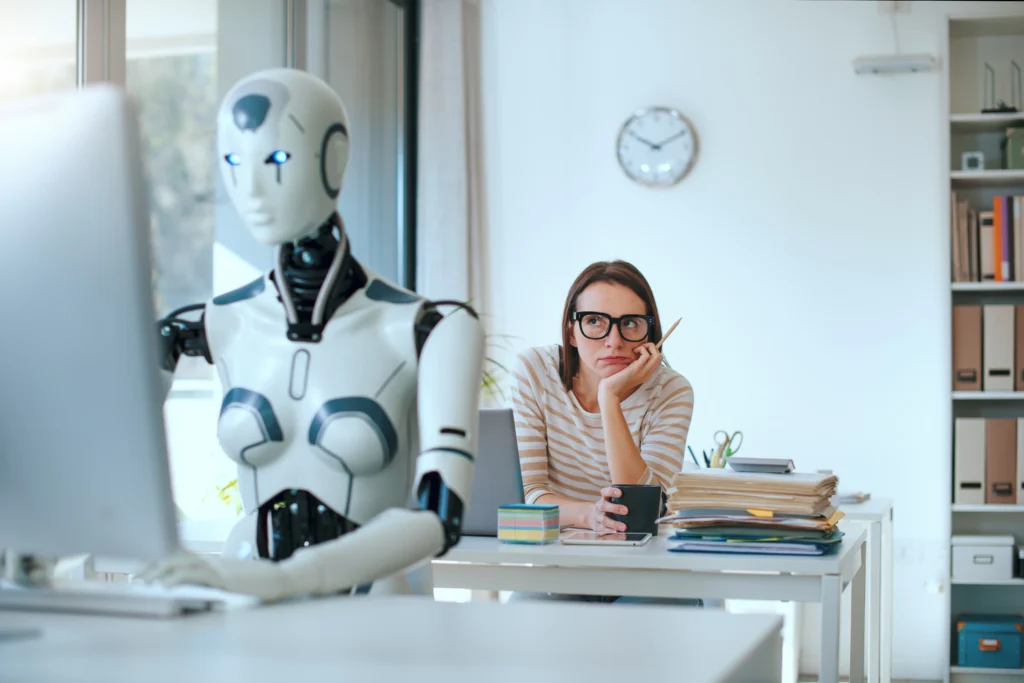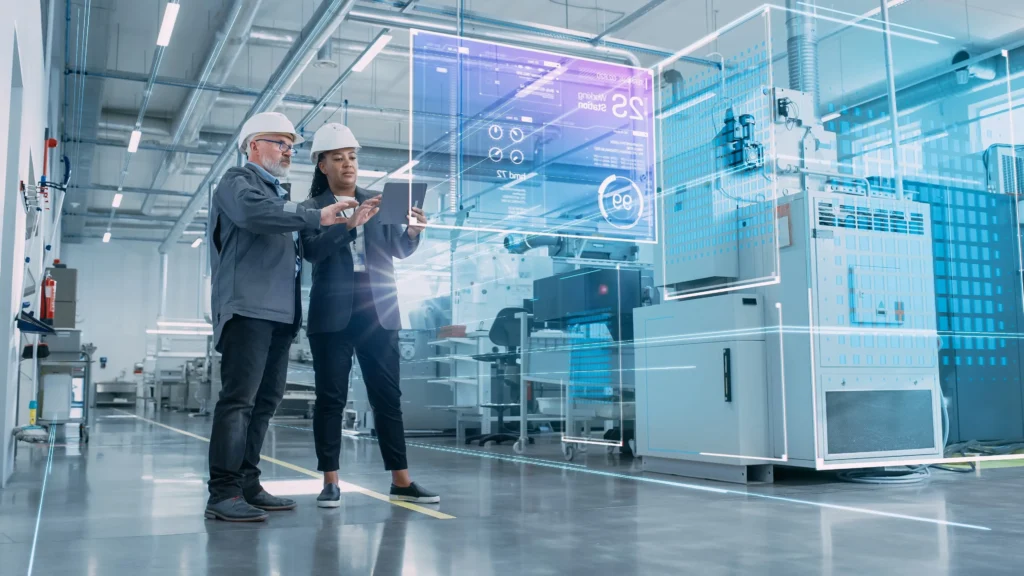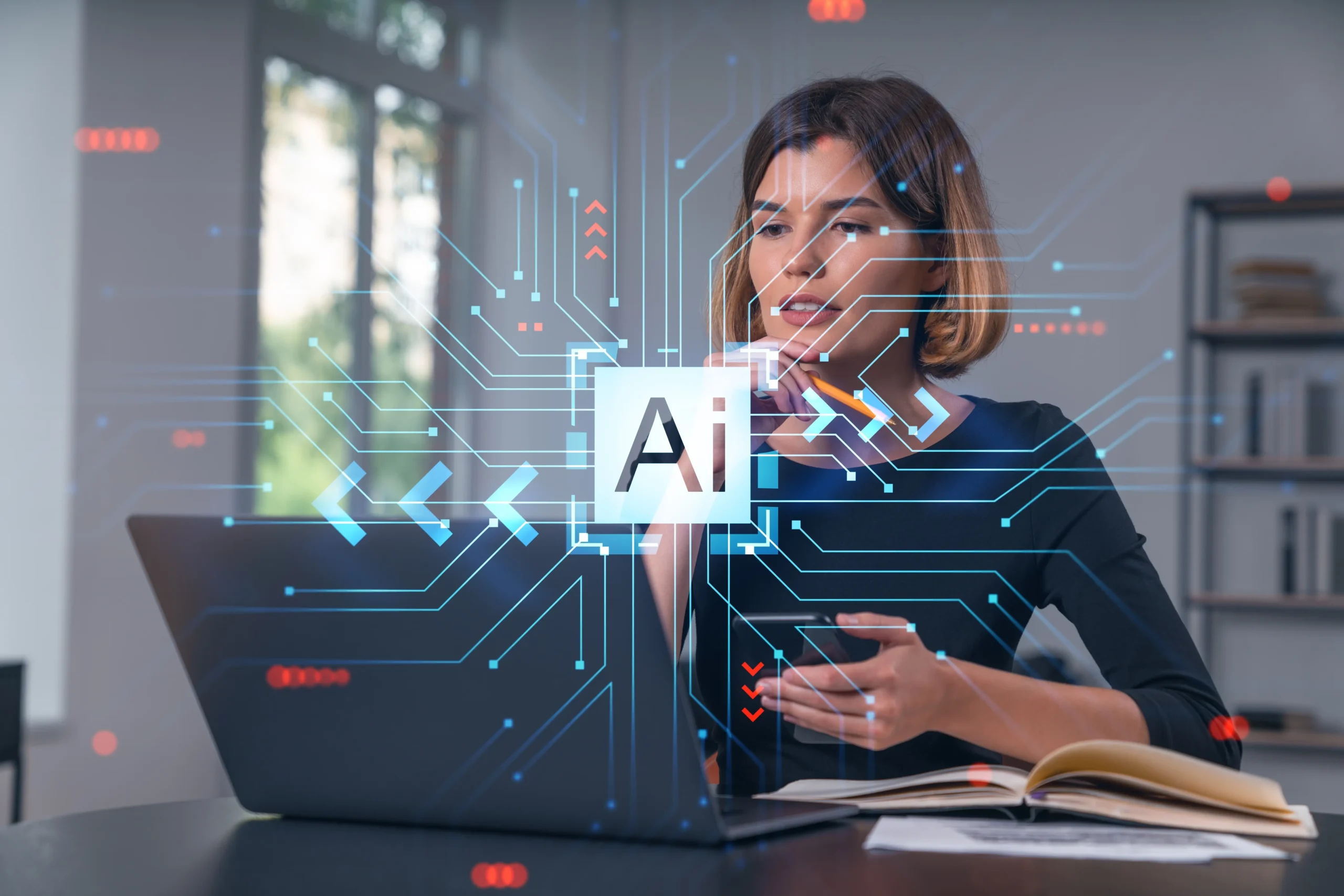Artificial intelligence (AI) has emerged as a disruptive force in the labor and economic landscape, transforming the way we work, produce and consume goods and services. In this article, we will explore the impact of artificial intelligence on employment and the economy, examining both the opportunities and challenges presented by this ever-evolving technology.
Before delving into the impact of artificial intelligence on employment and the economy, it is important to understand about the topic. Simply put, artificial intelligence refers to the ability of machines to perform tasks that would normally require human intelligence. This includes processes such as learning, adaptation, decision making and problem solving, all using algorithms and mathematical models.
Impact on employment
The introduction of artificial intelligence into the workplace has raised concerns about the future of employment. As machines become more capable of performing cognitive and routine tasks, the possibility arises that certain jobs will be automated, which could result in the loss of jobs for human workers. For example, in sectors such as manufacturing, logistics and customer service, artificial intelligence is being used to optimize processes and reduce labor costs.
However, AI-driven automation is also creating new employment opportunities in areas such as programming, data engineering, data science and data analytics. As organizations adopt artificial intelligence, there is a growing demand for professionals with skills in programming, statistics and machine learning to develop, implement and maintain artificial intelligence systems.
Emerging opportunities
Despite fears about job losses, artificial intelligence is also generating new job opportunities in a variety of industries. For example, in the healthcare sector, artificial intelligence is being used to diagnose diseases, personalize treatments and improve the operational efficiency of hospitals. In finance, artificial intelligence is being used to predict market trends, detect fraud and automate investment processes.
In addition, artificial intelligence is giving rise to the creation of new industries and business models, such as robotics, autonomous driving, virtual assistance and business process automation. These innovations are driving demand for highly skilled labor in areas such as software engineering, robotics and business intelligence.
Economic challenges
Despite the opportunities it offers, the widespread adoption of artificial intelligence also poses significant economic challenges. One of the main challenges is the risk of job displacement, especially for workers whose skills become obsolete due to automation. This can result in greater income inequality and the marginalization of certain groups in the labor force.
In addition, the implementation of artificial intelligence requires considerable investment in infrastructure, technology and personnel training. This can be prohibitively expensive for many companies, especially small and medium-sized companies that lack the financial and technical resources to adopt artificial intelligence effectively.

Social implications
In addition to the economic challenges, artificial intelligence also raises important social and ethical implications. For example, the increasing reliance on artificial intelligence to make critical decisions, such as hiring, credit, and medical treatment, raises concerns about fairness, transparency, and data privacy. In addition, there is a risk that artificial intelligence reflects and amplifies the biases and prejudices present in the data used to train the algorithms.
Artificial intelligence is having a significant impact on employment and the economy, both in terms of opportunities and challenges. While AI-driven automation has the potential to improve efficiency and productivity, it also raises important questions about equity, fairness and economic sustainability. It is crucial to address these challenges proactively and collaboratively to ensure that artificial intelligence benefits all of society.
Integration of Artificial Intelligence in the economy
The widespread adoption of artificial intelligence is transforming the way businesses and economies as a whole operate. Organizations are using artificial intelligence to optimize processes, improve decision making and offer more personalized products and services. For example, in the retail sector, artificial intelligence is used to predict consumer demand, optimize the supply chain and personalize the online shopping experience.
In addition, artificial intelligence is leading to the creation of new business models and revenue opportunities. For example, companies such as Netflix and Spotify use artificial intelligence algorithms to recommend personalized content to their users, which increases customer retention and loyalty. Similarly, financial services firms are using artificial intelligence to offer personalized financial advice and manage investment portfolios more efficiently.
Impact on employment and workforce
While artificial intelligence is creating new employment opportunities in areas such as programming, data science and artificial intelligence engineering, it is also altering the nature of many existing jobs. For example, in the manufacturing sector, artificial intelligence-driven automation is gradually replacing human workers in repetitive and routine tasks, such as assembly and packaging.
In addition, artificial intelligence is driving demand for digital and technical skills in the workforce. As companies embrace artificial intelligence, there is a growing need for professionals with expertise in developing and implementing artificial intelligence systems, as well as managing and analyzing large volumes of data. This is creating a skills gap in the labor market, with an insufficient supply of qualified workers to meet the demand for digital skills.
Economic and political implications
The growing prevalence of artificial intelligence is generating important economic and political implications at the national and international levels. On the one hand, AI is driving productivity and economic growth by improving efficiency and innovation in companies. On the other hand, AI-driven automation is contributing to the polarization of the labor market, with a growing divide between high-skilled workers and lower-skilled workers.
Artificial intelligence is raising important questions about regulation and governance. As artificial intelligence becomes more pervasive in the economy, it is crucial to establish regulatory and ethical frameworks that protect workers’ rights, mitigate risks of algorithmic discrimination, and ensure data security and privacy. This will require collaboration between governments, business and civil society to address the ethical and social challenges associated with the adoption of artificial intelligence.

Artificial intelligence is rapidly transforming employment and the economy, offering new opportunities for growth and development, as well as significant challenges for workers, businesses and policy makers. While artificial intelligence has the potential to improve efficiency and productivity, it also raises important questions about equity, fairness and economic sustainability. It is critical to address these challenges proactively and collaboratively to ensure that artificial intelligence benefits all of society and not just a privileged few.
Artificial intelligence is arguably significantly transforming the global employment and economic landscape. Its impact is undeniable. The mass adoption of artificial intelligence has created both opportunities and challenges. On the one hand, it has enabled the automation of routine and repetitive tasks, increasing efficiency and productivity in many sectors. On the other hand, it has raised concerns about job losses and labor market polarization as some jobs become obsolete, while others require advanced digital and technical skills.
It is relevant to recognize that artificial intelligence is not a panacea, but a powerful tool that must be used ethically and responsibly. Concerns related to algorithmic discrimination, data privacy and cybersecurity need to be addressed to ensure that artificial intelligence benefits all of society and not just a select few.
In addition, it is crucial to invest in education and training programs to prepare workers for the AI-driven future of work. This includes the development of digital skills, training in programming and data science, and the promotion of digital literacy at all levels of society.
Ultimately, the impact of artificial intelligence on employment and the economy will depend largely on how its challenges and opportunities are managed. It is the responsibility of governments, businesses and society as a whole to work together to ensure that artificial intelligence is used in a fair, equitable and sustainable manner, with the aim of improving the quality of life and promoting inclusive and sustainable economic development.



